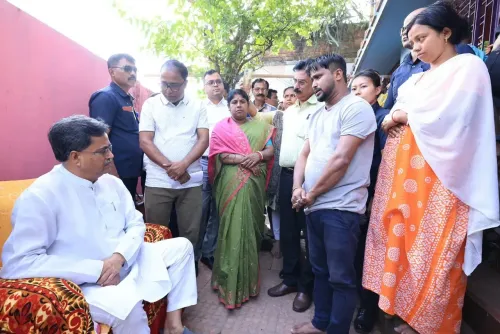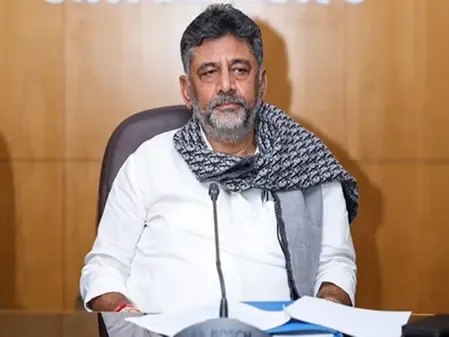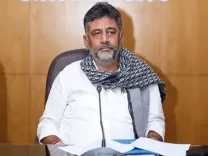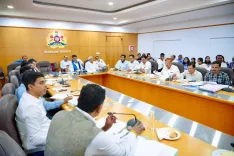Will India Maintain Bilateral Relations with Pakistan?
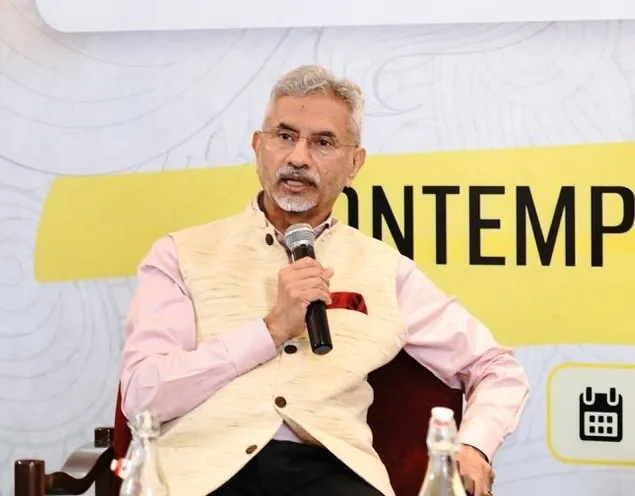
Synopsis
Key Takeaways
- India's stance on bilateral relations with Pakistan is unwavering.
- Focus on terrorism is paramount in discussions.
- Operation Sindoor marks a significant anti-terror initiative.
- International support is crucial following terrorist attacks.
- India maintains a firm position on national security.
New Delhi, May 15 (NationPress) Reinforcing India's enduring stance, External Affairs Minister (EAM) S. Jaishankar stated emphatically on Thursday that all matters regarding Pakistan will be addressed exclusively through bilateral discussions with Islamabad.
"Our relations with Pakistan will be strictly bilateral. This has been the national consensus for many years, and there is no change in that stance," EAM Jaishankar remarked to the press during the inauguration of the Honduras Embassy in New Delhi.
Recently, U.S. President Donald Trump has made several references to the India-Pakistan conflict, positioning himself as a peacemaker dedicated to resolving global conflicts.
The Ministry of External Affairs (MEA) reiterated earlier this week that issues concerning the Union territory of Jammu and Kashmir must be managed bilaterally between India and Pakistan.
"This stated policy remains unchanged. As you are aware, the unresolved issue is the withdrawal of illegally occupied Indian territory by Pakistan," MEA spokesperson Randhir Jaiswal conveyed during a weekly media briefing.
The EAM highlighted that India has reached significant objectives, including dismantling terrorist infrastructure through Operation Sindoor.
"The Prime Minister has made it abundantly clear that any discussions with Pakistan will focus solely on terrorism. Pakistan has a list of terrorists to hand over, and they must dismantle their terrorist infrastructure. They know the necessary actions. We are ready to engage in discussions about terrorism. Those are the only feasible talks," stated EAM Jaishankar.
Following the successful Operation Sindoor, Jaishankar emphasized that New Delhi gained substantial international backing after the tragic Pahalgam terror attack on April 22, which led to the deaths of 26 innocent civilians.
The Resistance Front (TRF), an international terrorist organization linked to the Pakistan-based Lashkar-e-Taiba (LeT), claimed responsibility for the attack.
"Let me clarify a few points. We received considerable international support. Numerous ministers and leaders reached out to the Prime Minister, and many ministers contacted me. We had a Security Council resolution clearly stating that those responsible for this attack should be held accountable. On May 7, we took action to hold them accountable through Operation Sindoor," the EAM stated.
He also clarified India’s position on ceasefire and military actions.
"We achieved our objectives by destroying the terrorist infrastructure. Given that key goals were met, we justifiably maintained our position. At the start of the operation, we informed Pakistan that we were targeting terrorist infrastructures, not military installations, and the military had the option to refrain from interfering. They chose not to heed that advice. They faced significant losses on May 10. Satellite images clearly depict the extent of damage we inflicted compared to theirs," Jaishankar asserted.
Earlier in the day, during remarks in Srinagar, Defence Minister Rajnath Singh stated that India respects the ongoing ceasefire only if no terrorist attacks occur within the country. He also suggested that a global watchdog should oversee Pakistan's nuclear facilities.
While addressing Indian Army personnel at the Badami Bagh Cantonment in Srinagar, which serves as the headquarters for the Army’s 15 Corps, Defence Minister Rajnath Singh described, "Our 'Operation Sindoor' is undoubtedly the largest anti-terrorist operation ever undertaken by India. We struck their core and left a significant impact after they attempted to attack us."

